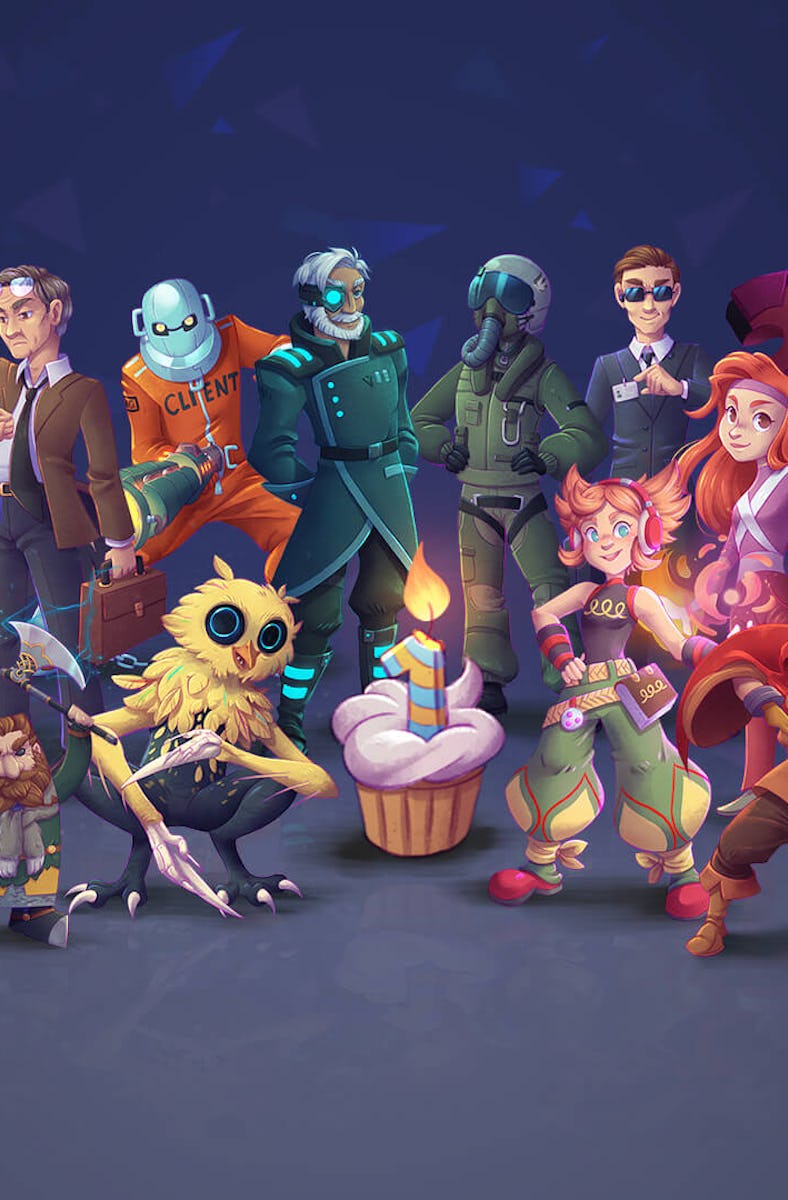Humble Games ‘Restructuring’ Shows There’s No Easy Answer to Gaming’s Layoff Crisis
Employees and owners clash over the fate of Humble Games.

By now, layoffs and studio closures are a near daily occurrence in the games industry, but that doesn’t mean they can’t still come as a shock. This week, publisher Humble Games announced that it would “restructure” the company, though former employees say the entire staff has been eliminated. It’s the latest in a series of devastating blows for the industry, this time centered on an indie publisher with a shining track record.
Humble Games, which is owned by IGN parent company Ziff Davis, announced the layoffs with a social media post so impersonal and vague that some suspect it was written by AI. At the very least, it’s clearly the product of a company that just fired everyone who knows what they’re doing. The statement cites “challenging economic times” as the reason for its alleged restructuring, a decision it says was made “with the goal of ensuring the stability and support of our developers and ongoing projects.”
Humble Games did not immediately respond to Inverse’s request for comment.
However, Humble’s employees themselves tell a different story. Chris Radley, a former creative lead at Humble Games who left in 2022, shared on LinkedIn, “this is NOT a restructuring of operations. This is a total shutdown of Humble Games. Operations have been handed off to a third party consultancy. NO staff are left.”
Posts by other employees seem to confirm that all 36 of Humble Games’ staff have been laid off. That’s also backed up by an anonymous former employee who told Aftermath, “No one from HG survived the layoffs, nor will they have anything to do with game launches moving forward.” According to the same sources, Humble Games’ troubles stemmed from Ziff Davis wanting to see “an immediate increase in revenue after investing cash into a business, and unfortunately that's just not how games works.”
The company insists that Humble Games is going through a “restructuring,” rather than a closure. But Aftermath also reportedly obtained a recording of a meeting in which president Steve Horowitz acknowledges that “a third party” called the Powell Group will be handling operations from now on. The Powell Group is a consultancy that’s previously worked with developers including Nightdive Studios and Netease Games.
Humble Games’ output in recent years includes games like the instant classic Signalis.
While Humble Games’ continued operation may be a slight silver lining for the seven developers with games it’s slated to publish soon, that short-term consolation pales in comparison to the damage done by its virtual closure. Humble Games has an unbelievably stacked back catalog, including Unsighted, Signalis, Unpacking, and Slay the Spire. Just about every one of its games that didn’t reach major success inspired a cult following, like some of my personal favorites, Fae Tactics and Ikenfell. From the outpouring of support and shock on social media, it’s clear that Humble Games’ penchant for attracting devoted audiences to its cult classic indies is something that’s been noticed by many of their fans.
More than that, Humble Games is a spinoff of Humble Bundle, an IGN-owned company that sells discounted game bundles while contributing significant amounts of revenue to charity. Sources told Aftermath that that engendered a sense of pride at Humble Games, since its own releases were seen as partially fueling Humble Bundle’s popularity. The loss from the “restructuring” of Humble Games is threefold then — dozens of people are out of work, a respected indie publisher is no more, and Humble Bundle’s charitable ventures may even suffer as a result.
The Humble Games layoffs look even worse in the context of the past few years. Microsoft laying off 1,900 people shortly after acquiring Activision Blizzard was devastating, but unsurprisingly since layoffs almost always follow acquisitions. Sony axing developers across its biggest studios was easy to chalk up to the demands of constantly ballooning budgets. Roll7 and Intercept Games were shuttered at the whim of Take-Two executives more concerned with gambling big budgets on bigger profits than supporting award-winning indies. Even excellent indie studios like the developer of Saltsea Chronicle can’t be expected to weather the storm of investment money drying up. Maybe a company like Ziff Davis, with pockets deep enough to shell out for publishers and media outlets alike, could have been expected to keep a successful indie publisher afloat, but even that didn’t work out in the end.
Humble Games’ upcoming releases with reportedly be handled by consultancy The Powell Group.
The problem, it’s becoming abundantly clear, is not about quality or money or even mismanagement. Where “mismanagement” implies that Ziff Davis tried and failed to make Humble Games profitable, it seems instead that its executives had no idea how game developers work or even what should be expected of them. The people in charge are not only uninterested in learning how to run their own companies, but also in what makes them valuable in the first place. No game developer in the world is going to turn a profit in six months, and the obvious value of Humble Games — its contributions to gaming as a medium and the prestige that follows — are simply not interesting to people who don’t care about games and can’t be bothered to learn about their own business
There are no easy lessons to learn from Humble Games — even the generally good advice to support indies can’t change the fate of a publisher whose owners seem to be setting it up to fail. It’s a company that seemed to be doing everything right and was rewarded with loyal fans and the goodwill of developers it represented. But in the end, success wasn’t enough for its owners, who demanded the impossible instead.